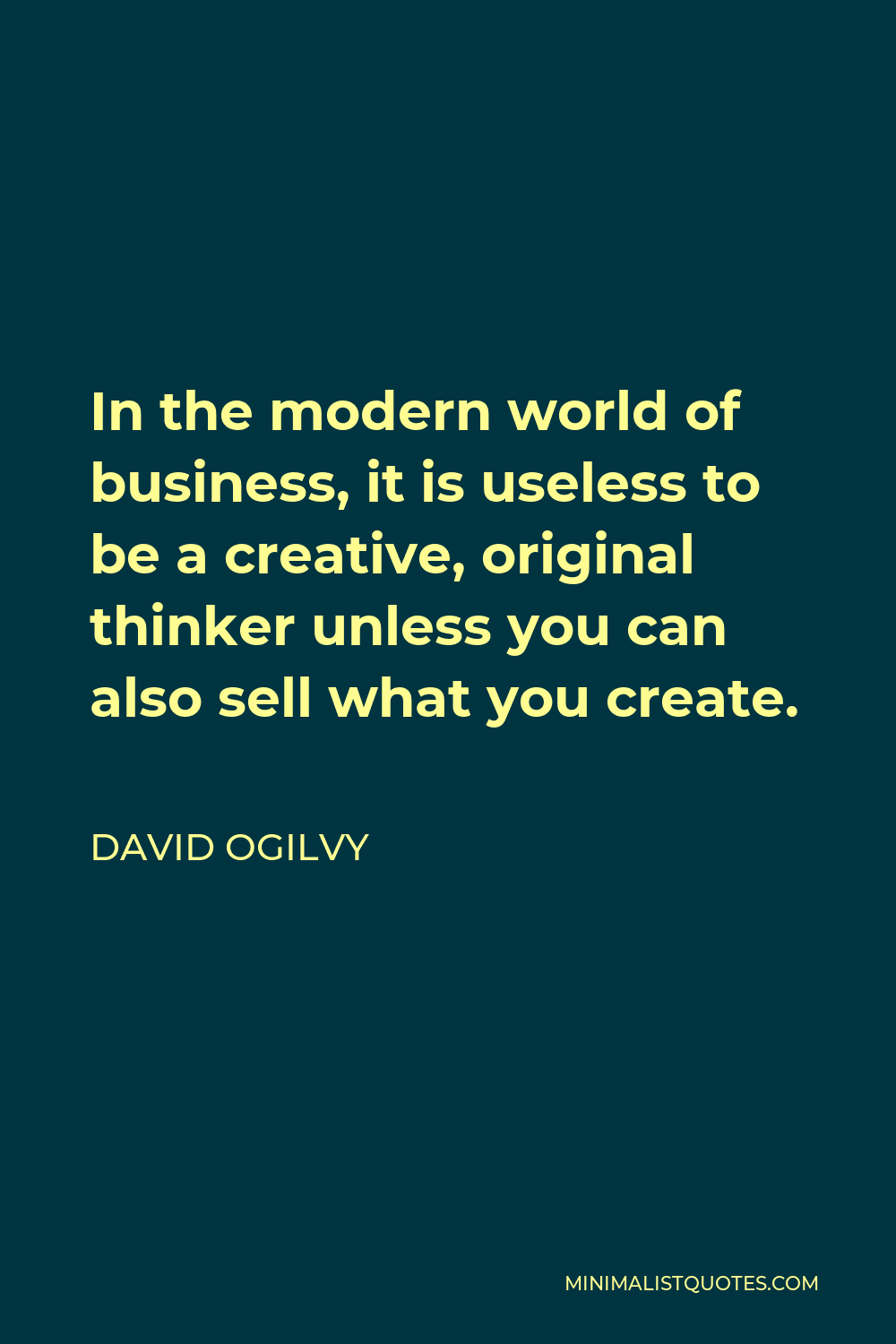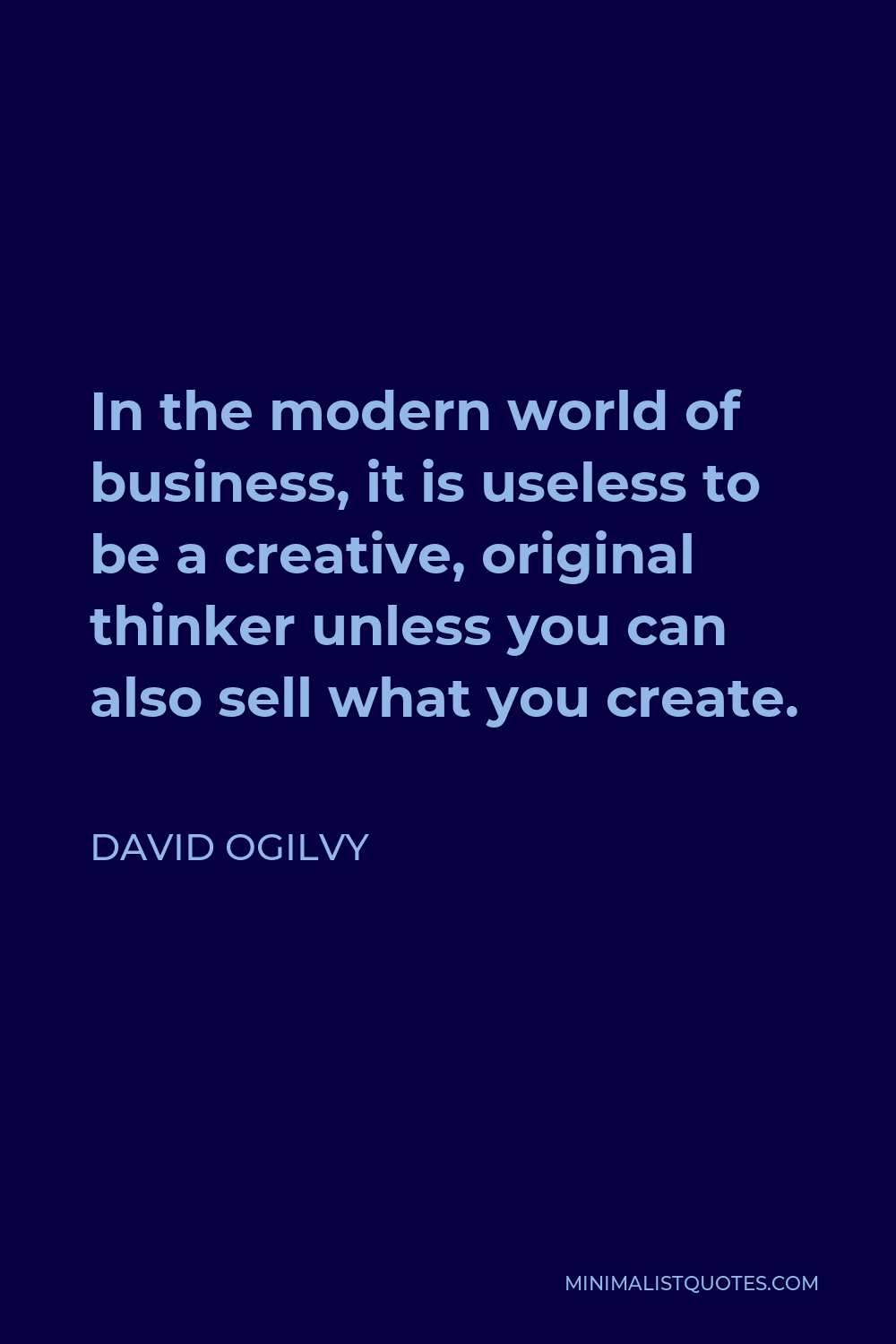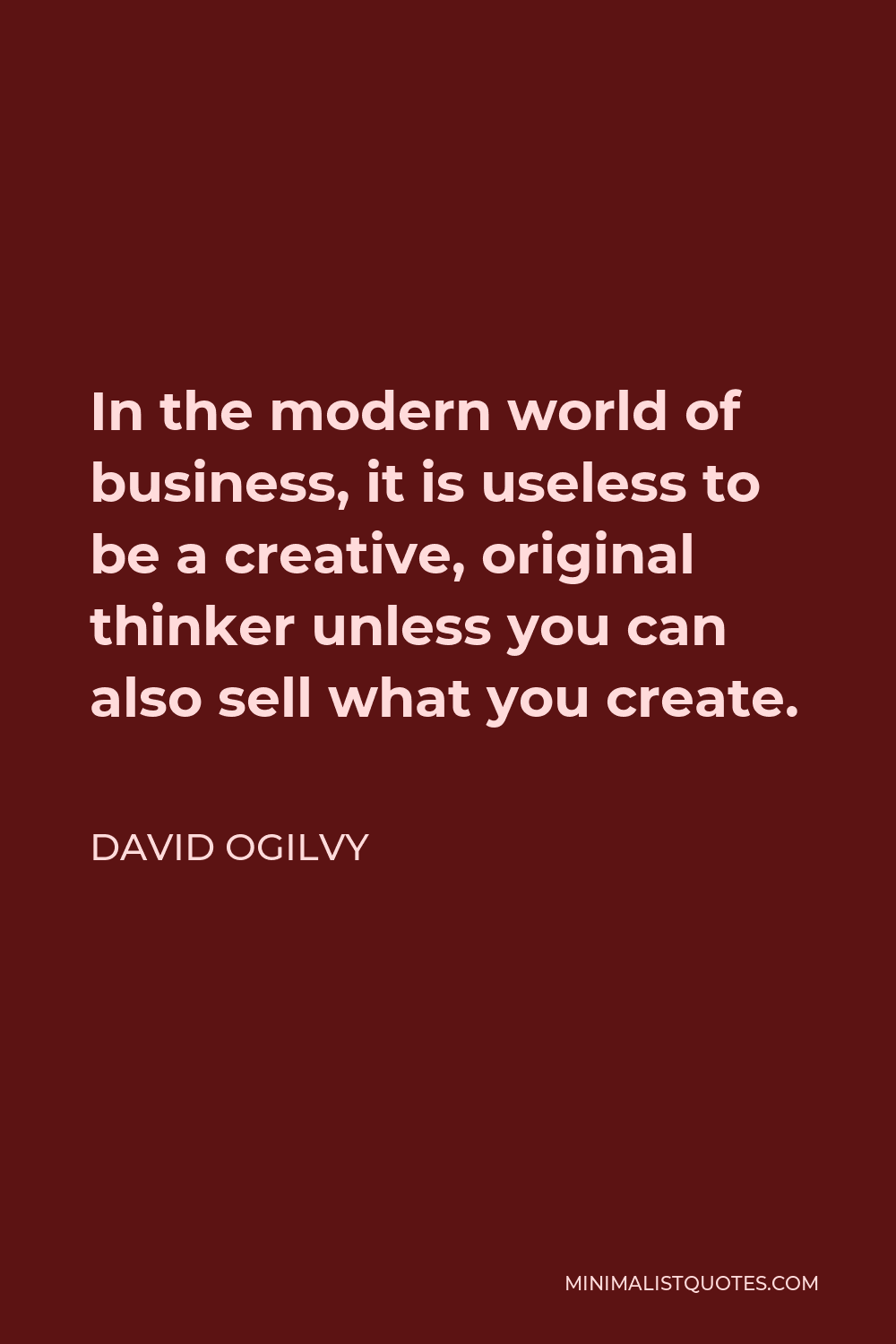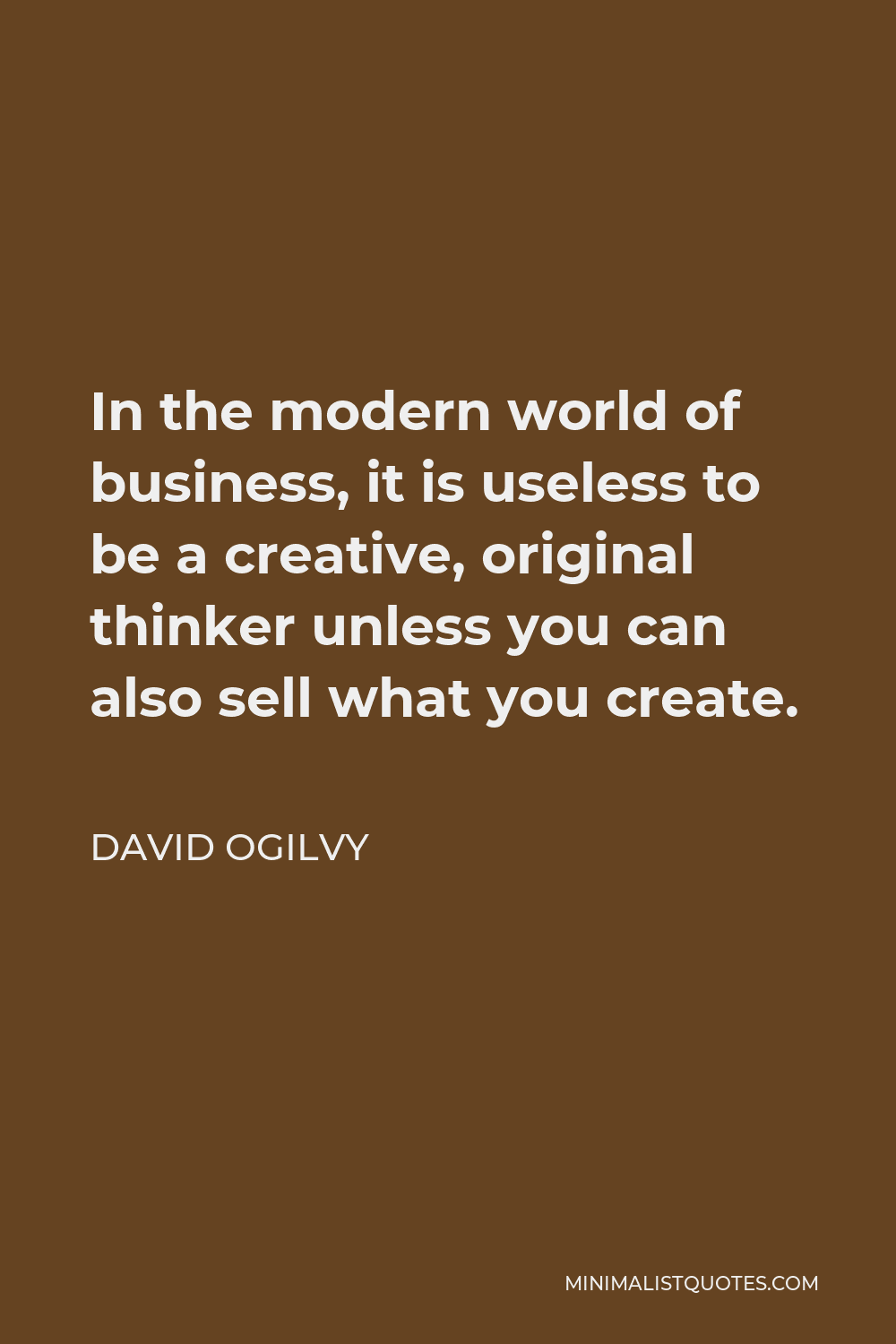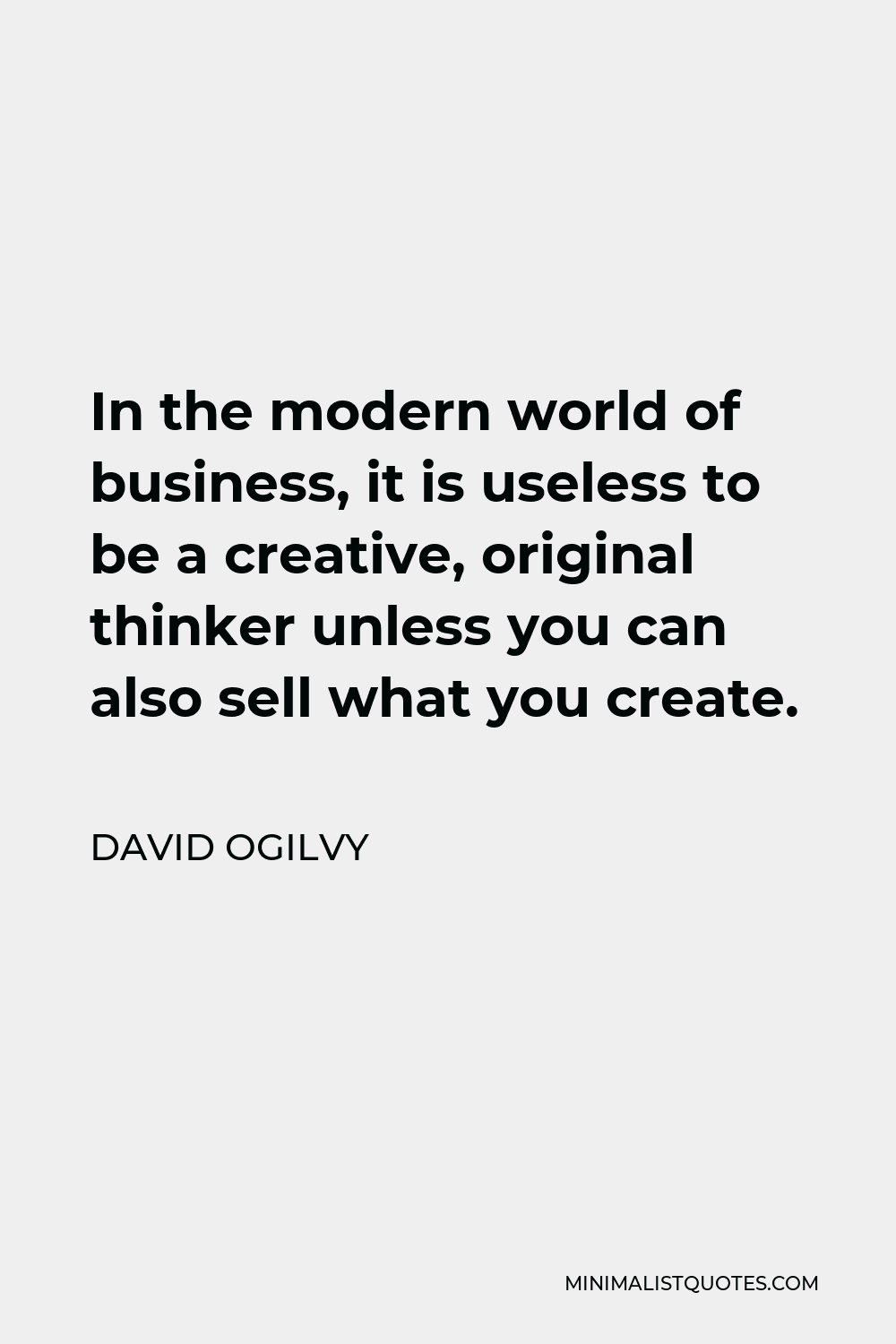The headline is the ‘ticket on the meat.’ Use it to flag down readers who are prospects for the kind of product you are advertising.
DAVID OGILVYIn the modern world of business, it is useless to be a creative, original thinker unless you can also sell what you create.
More David Ogilvy Quotes
-





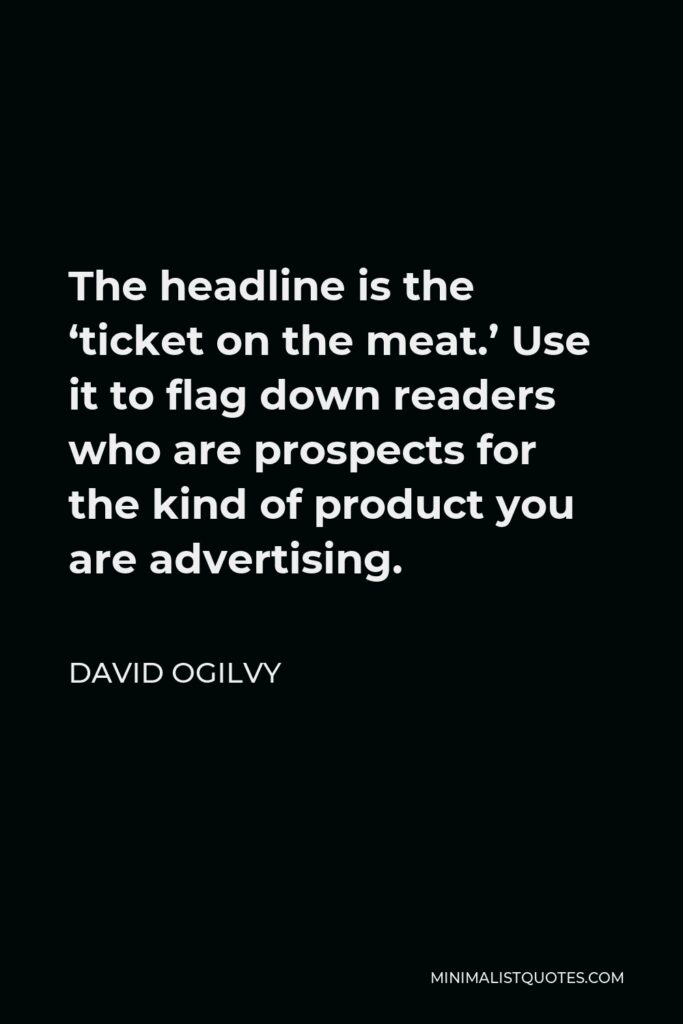

-





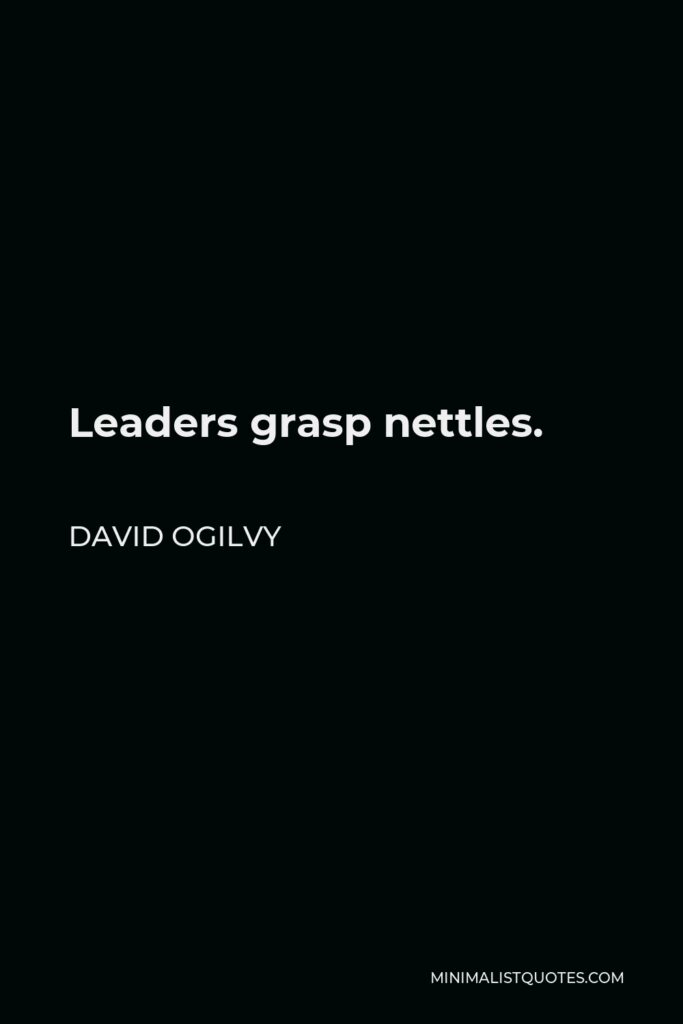

Leaders grasp nettles.
DAVID OGILVY -







The best ideas come as jokes. Make your thinking as funny as possible.
DAVID OGILVY -





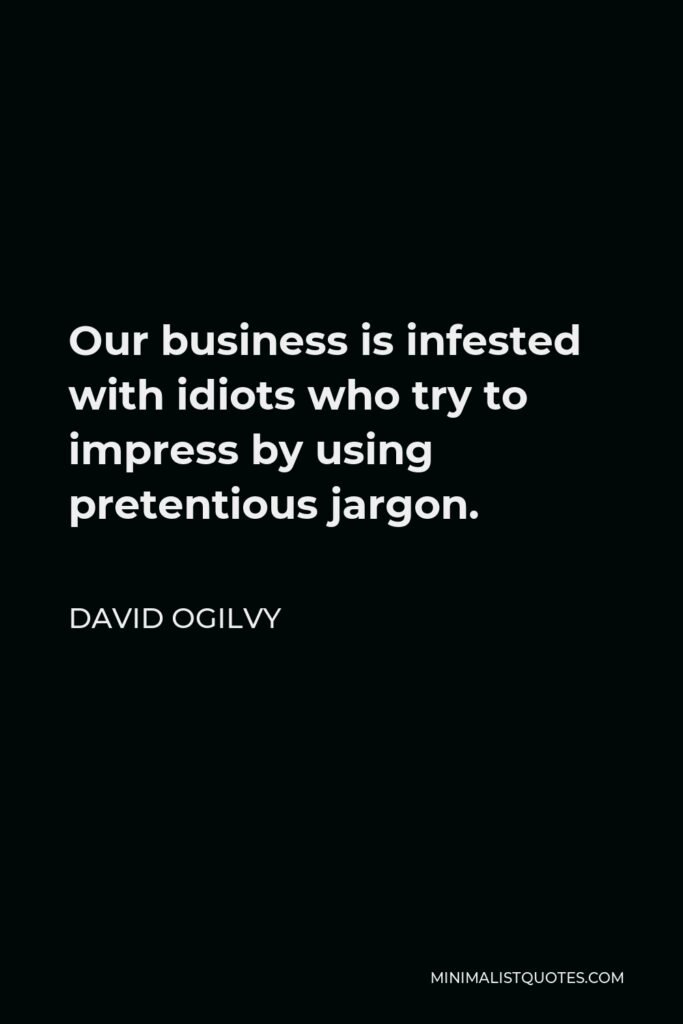

Our business is infested with idiots who try to impress by using pretentious jargon.
DAVID OGILVY -





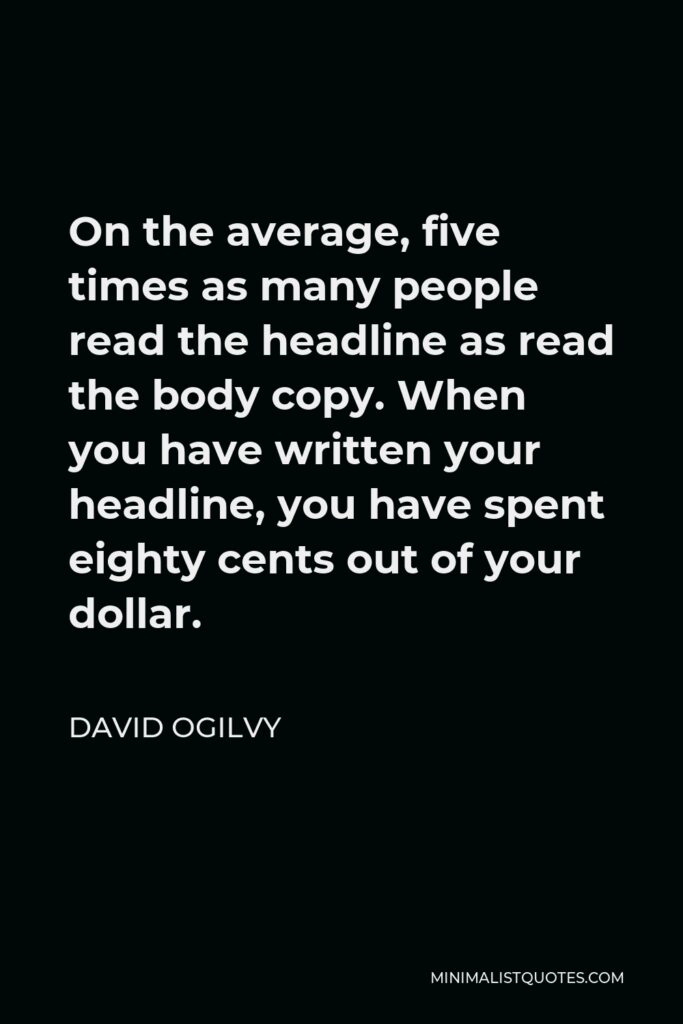

On the average, five times as many people read the headline as read the body copy. When you have written your headline, you have spent eighty cents out of your dollar.
DAVID OGILVY -







Good copy can’t be written with tongue in cheek, written just for a living. You’ve got to believe in the product.
DAVID OGILVY -





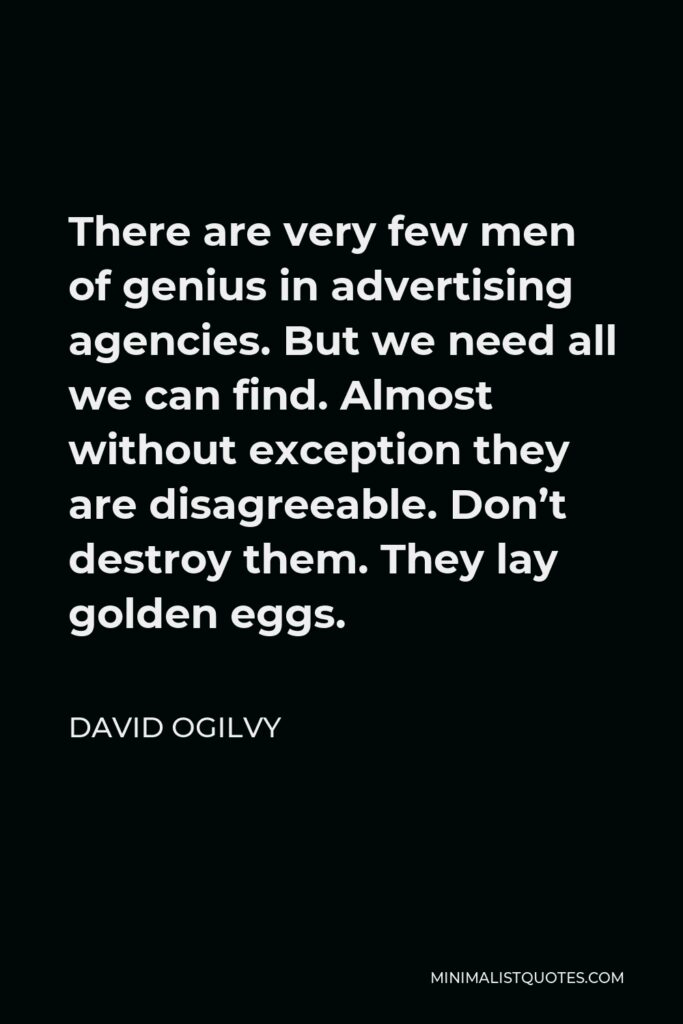

There are very few men of genius in advertising agencies. But we need all we can find. Almost without exception they are disagreeable. Don’t destroy them. They lay golden eggs.
DAVID OGILVY -





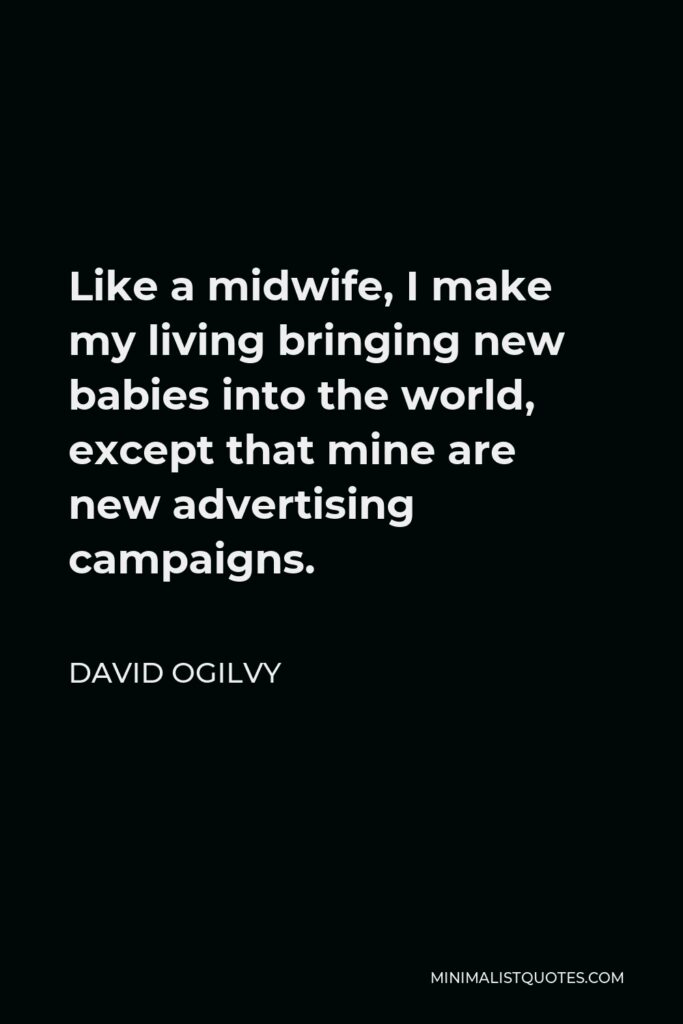

Like a midwife, I make my living bringing new babies into the world, except that mine are new advertising campaigns.
DAVID OGILVY -





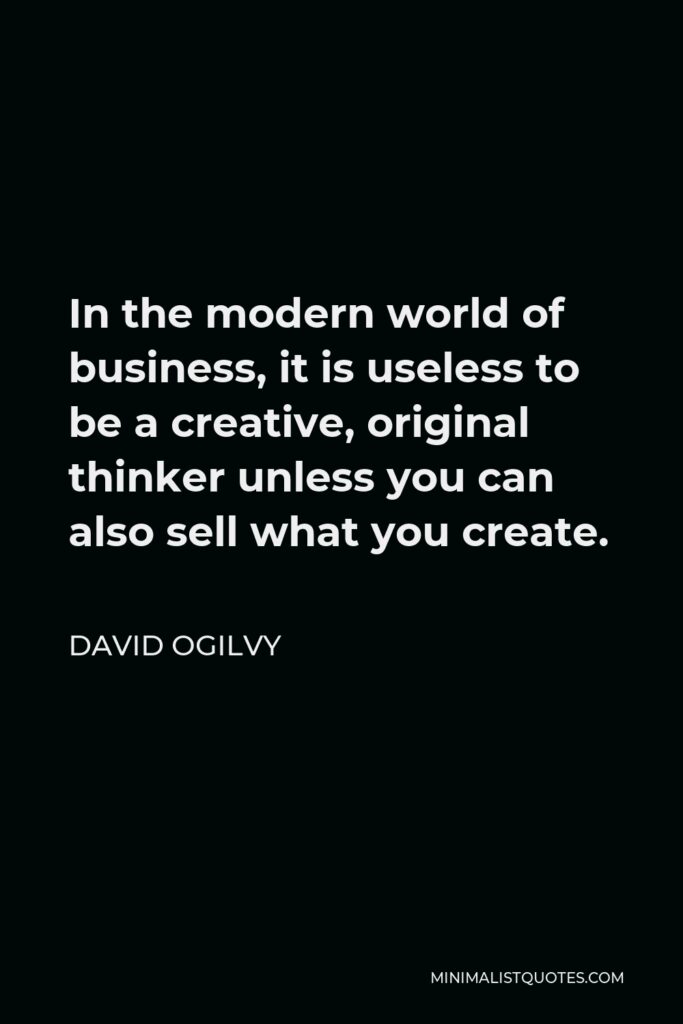

In the modern world of business, it is useless to be a creative, original thinker unless you can also sell what you create.
DAVID OGILVY -





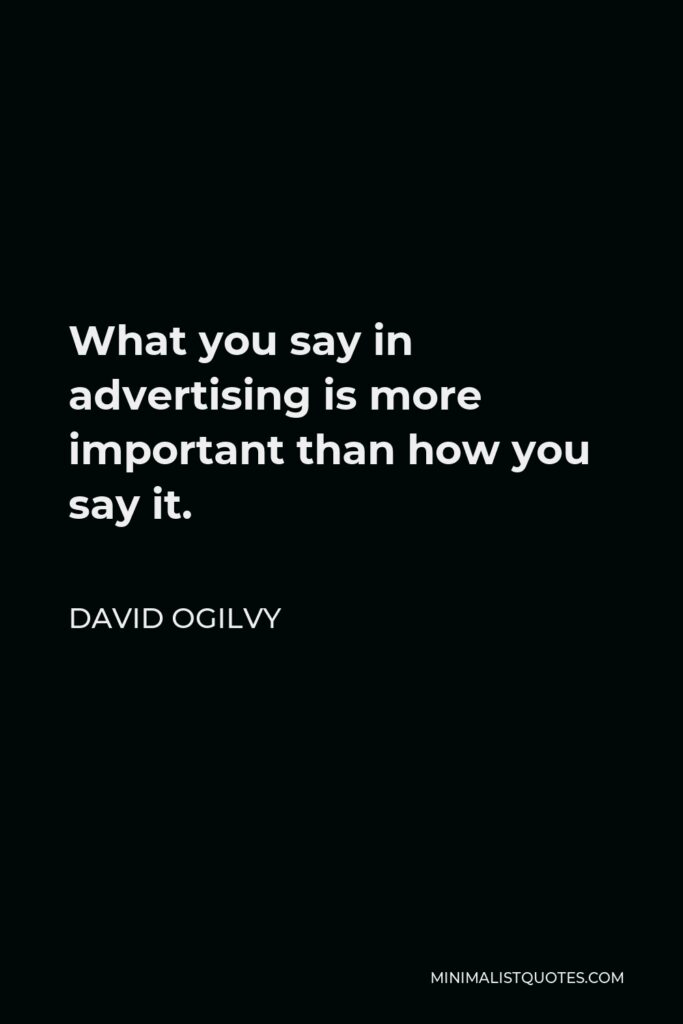

What you say in advertising is more important than how you say it.
DAVID OGILVY -





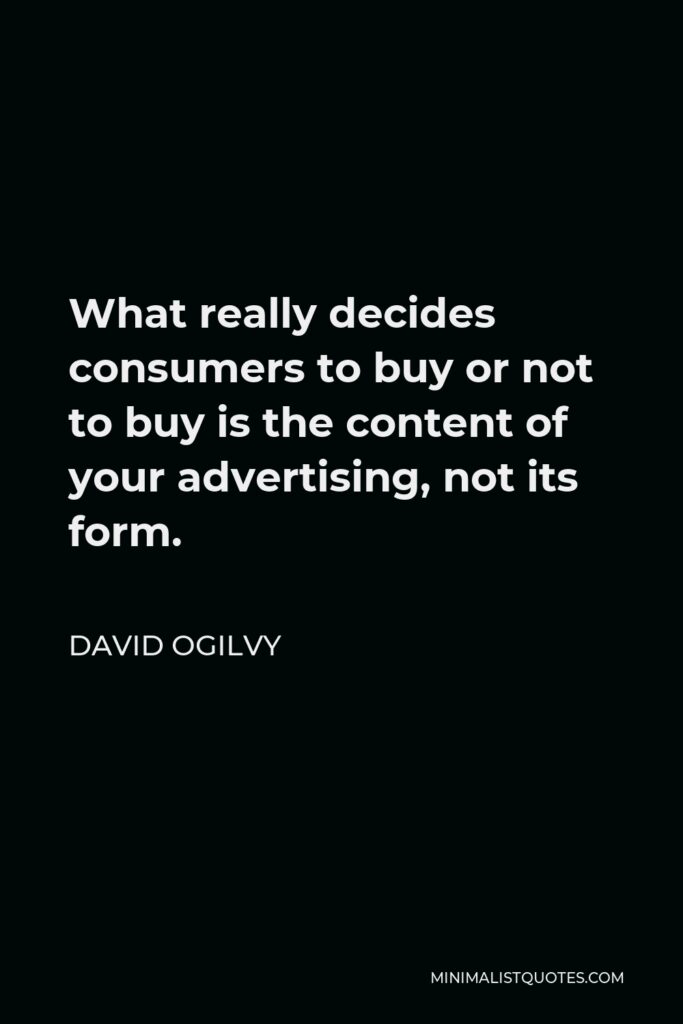

What really decides consumers to buy or not to buy is the content of your advertising, not its form.
DAVID OGILVY -





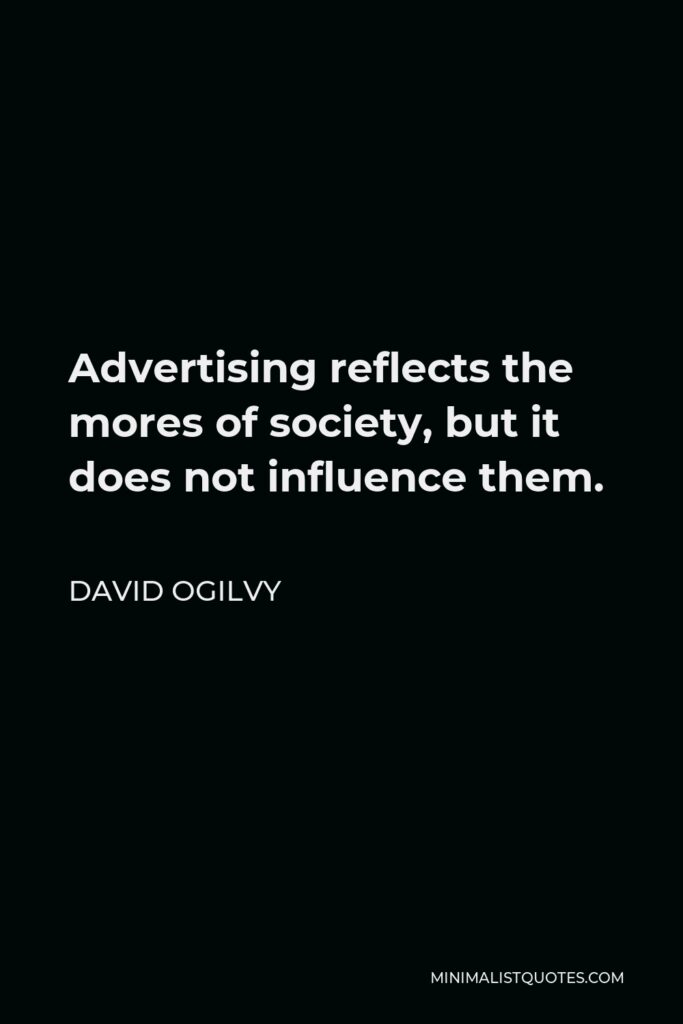

Advertising reflects the mores of society, but it does not influence them.
DAVID OGILVY -





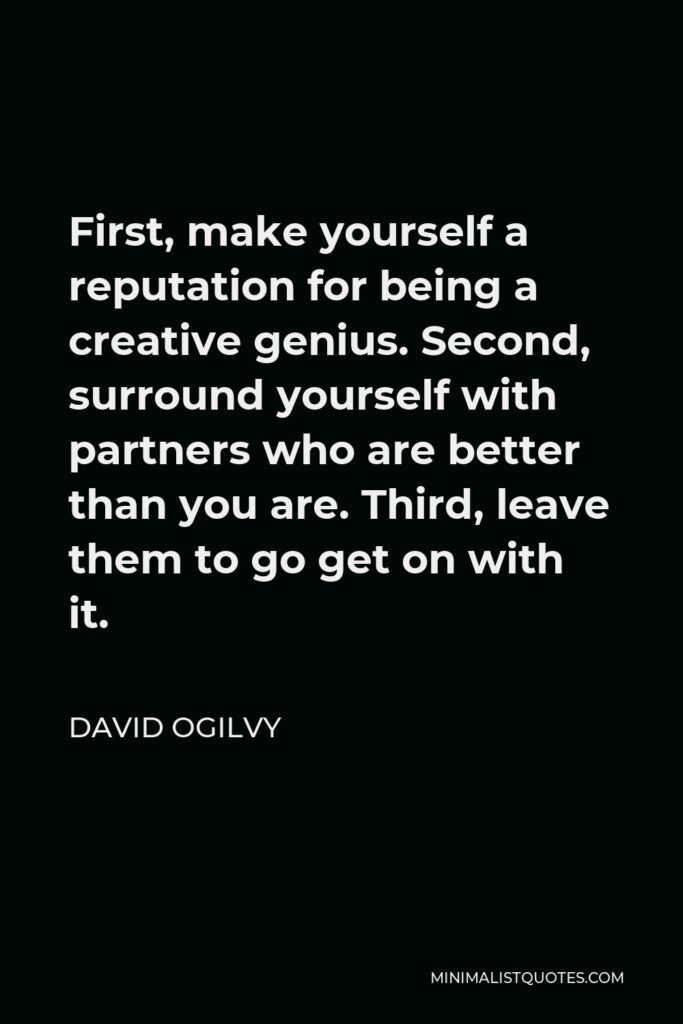

First, make yourself a reputation for being a creative genius. Second, surround yourself with partners who are better than you are. Third, leave them to go get on with it.
DAVID OGILVY -





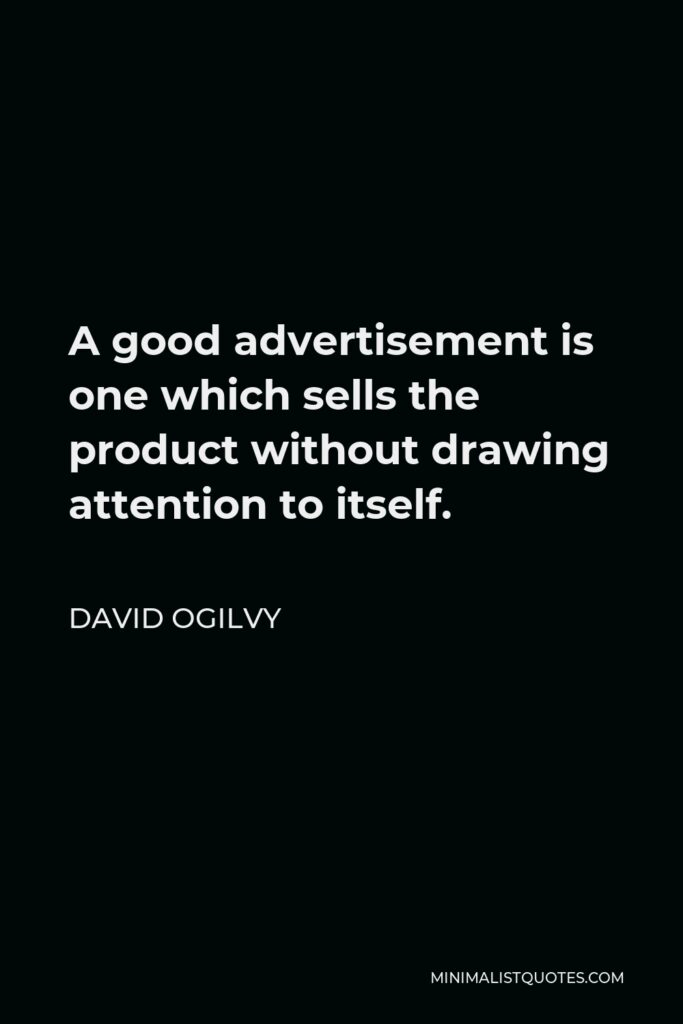

A good advertisement is one which sells the product without drawing attention to itself.
DAVID OGILVY -





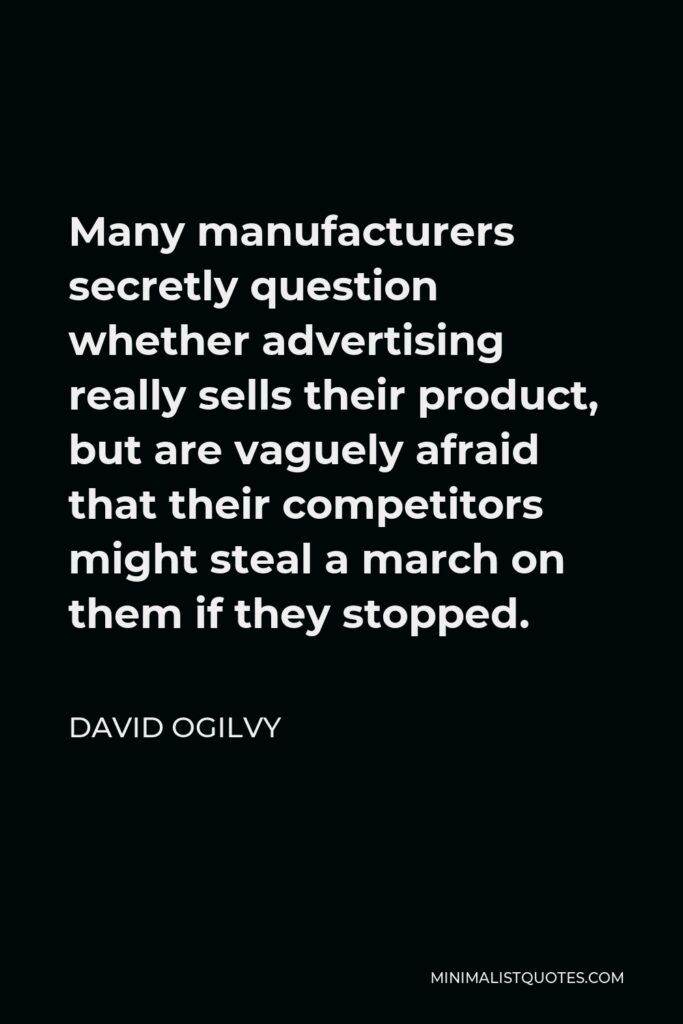

Many manufacturers secretly question whether advertising really sells their product, but are vaguely afraid that their competitors might steal a march on them if they stopped.
DAVID OGILVY -





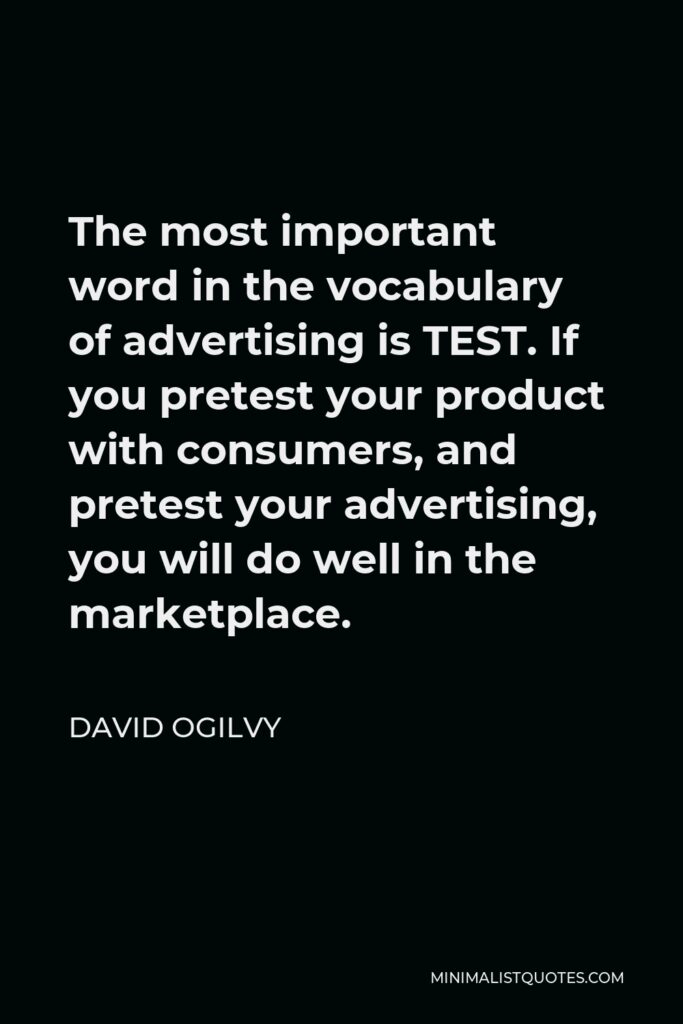

The most important word in the vocabulary of advertising is TEST. If you pretest your product with consumers, and pretest your advertising, you will do well in the marketplace.
DAVID OGILVY

